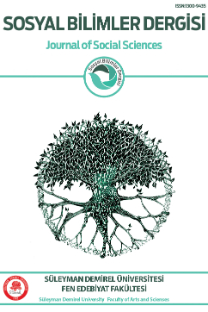The use of language in political Rhetoric:Linguistic manipulation
___
ATKINSON, Max. Our Master’s Voices. The Language and Body Language of Politics. London: Methuen, 1984BLACK, Max. Metaphor. In Models and Metaphors, edited by Max Black, NY: Cornell
BURAJA, Polina. The Linguistic Means of Political Discourse. Unpublished master paper. Riga:University of Latvia, 2007
CHILTON, Paul Anthony. Politics and Language. In Concise Encyclopaedia of Pragmatics, London:Elsevier, 1998
FAIRCLOUGH, Norman. Language and Power. London: Longman, 1989
HALLIDAY, Michael. Language as Social Semiotic. London: Edvard Arnold, 1978
HESSE, Mary. Models and Analogies in Science. London: Scheed and Ward, 1966.
KITTAY, Eva. Metaphor: Its Cognitive Force and Linguistic Structure. Oxford: Oxford University Press, 1987.
KRESS, Gunther. Linguistic Processes in Sociocultural Practices. Oxford: Oxford University Press,1989.
LAKOFF, George and Johnson, Mark. Metaphors We Live By. Chicago, IL: University of Chicago Press,1980.
Longman Dictionary of Contemporary English (2001). London: Longman
LUKE, Allan. Ideology. In Concise Encyclopaedia of Pragmatics, 366-369. London: Elsevier, 1998.
MEY, Jacob. Whose Language? Amsterdam: Benjamins, 1986
NACISCIONE, Anita. Phraseological Units in Discourse: Towards Applied Stylistics. Riga: Latvian Academy of Culture, 2001.
PECHEUX, Michel. Language. Semantics and Ideology. Oxford: Oxford University Press, 1982.
THERBORN, Goran. The Ideology of Power and the Power of Ideology. Cambridge: Polity Press,1980.
- ISSN: 1300-9435
- Yayın Aralığı: 3
- Başlangıç: 1995
- Yayıncı: Süleyman Demirel Üniversitesi, Fen-Edebiyat Fakültesi
Anadolu'da savaş,İstanbul'da kanun hazırlığı ve hanedan-ı Al-i Osman kararnamesi
Yabancıların Gözüyle 19. Yüzyılda Karadağ Kadını
Akşehir kırlarında nüfus,yerleşme ve arazi kullanımı.
27 Mayıs 1960' tan günümüze paylaşılmayan Demokrat parti mirası
Sağlık bilişim sistemlerinin uygulanmasına ilişkin bir araştırma:İzmir örneği
12 Mart romanlarında aile yarın yarın,47'liler
XVII. Yüzyılın Sonlarında Hıristiyan Birliği Projesi ve Osmanlı-Fransız İlişkileri
Senirkent Hıdır Çelebi (Pazar) Camii
Iran in central Asia:1990-2000
Dinar şehrinde kurtuluş,gelişme,nüfus ve fonksiyonel özellikler
